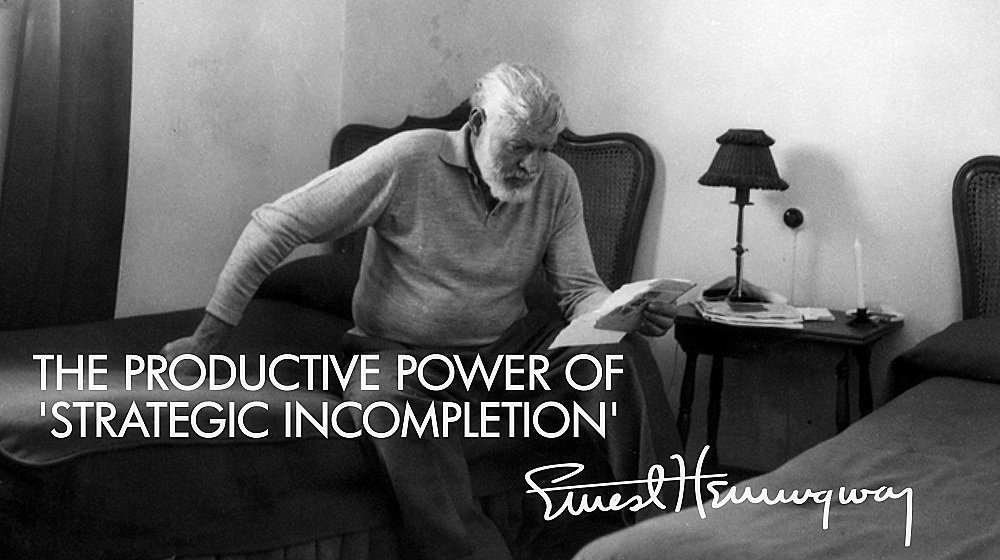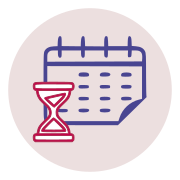
Ernest Hemingway claimed to have a disciplined writing routine. He wrote early each morning and always stopped while he still knew what came next—leaving something in the “well” for the following day. He shared this advice in various contexts, notably in a 1935 Esquire article, framing it as an antidote to creative block.
When the goal is sustained momentum in any creative or cognitive endeavor, one principle stands out: stop while the work is still alive. Hemingway wasn’t just advising writers when he said, “The best way is always to stop when you are going good and when you know what will happen next.” He was articulating a broader truth about motivation: friction.
The method is deceptively simple: pause while momentum remains. Finishing everything may feel productive, but it often kills clarity. Push past peak energy, and you return to dread. Pause midstream, and you resume with direction.
The Hemingway Principle of Continuity
This defies cultural instinct. We’re conditioned to chase closure—to exhaust ourselves chasing completion. But exhaustion isn’t discipline. The better move is knowing when to stop: at the crest of effort, when the next step is obvious—but untaken.
Hemingway distilled this perfectly: “I had learned already never to empty the well of my writing, but always to stop when there was still something there in the deep part of the well, and let it refill at night from the springs that fed it.”
He wasn’t preserving mystery—he was preserving momentum.
Applied broadly, the technique dulls resistance. Reentry becomes ritual—driven by anticipation, not obligation. You don’t resume reluctantly. You resume with hunger.
Idea for Impact: Leave your work unfinished on purpose. Not because you failed, but because the unfinished work remains fertile. Discipline isn’t about what you finish. It’s about the ability to return—again and again.
 If you’re a working professional with a family, your calendar probably feels
If you’re a working professional with a family, your calendar probably feels  Strategy means nothing without execution. Yet too often, plans drown in opinion. Feedback loops expand. Timelines slip. Clarity
Strategy means nothing without execution. Yet too often, plans drown in opinion. Feedback loops expand. Timelines slip. Clarity 

.jpg)
 Worry can often feel overwhelming, but it usually
Worry can often feel overwhelming, but it usually  Do you really understand
Do you really understand  Yes, it’s hard to hit the ground running in the morning. It’s tempting to mark easy tasks off your to-do list—switching over your laundry or checking email in a few minutes, but you never stop there. The sense of accomplishment you’ll get from such small things usually never builds up.
Yes, it’s hard to hit the ground running in the morning. It’s tempting to mark easy tasks off your to-do list—switching over your laundry or checking email in a few minutes, but you never stop there. The sense of accomplishment you’ll get from such small things usually never builds up. Whenever someone requests something from you, or when you embark on a task yourself, it’s essential to always establish a clear deadline.
Whenever someone requests something from you, or when you embark on a task yourself, it’s essential to always establish a clear deadline.